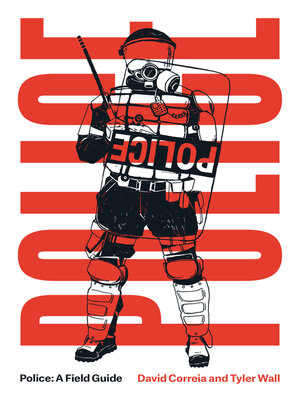
Sign up to save your library
With an OverDrive account, you can save your favorite libraries for at-a-glance information about availability. Find out more about OverDrive accounts.
Find this title in Libby, the library reading app by OverDrive.



Search for a digital library with this title
Title found at these libraries:
| Library Name | Distance |
|---|---|
| Loading... |
A radical guide to the language of policing
This field guide arms activists—and indeed anyone concerned about police abuse—with critical insights that ultimately redefine the very idea of policing. When we talk about police and police reform, we speak the language of police legitimation through euphemism. So state sexual assault becomes “body-cavity search,” and ruthless beatings “non-compliance deterrence.”
In entries such as “police dog,” “stop and frisk,” and “rough ride,” the authors expose the way “copspeak” suppresses the true meaning and history of law enforcement. In field guide fashion, they reveal a world hidden in plain view. The book argues that a redefined language of policing might help us chart a future that’s free.
Including explanations of newsmaking terms such as “deadname,” “kettling,” and “qualified immunity,” and a foreword by leading justice advocate Craig Gilmore.
This field guide arms activists—and indeed anyone concerned about police abuse—with critical insights that ultimately redefine the very idea of policing. When we talk about police and police reform, we speak the language of police legitimation through euphemism. So state sexual assault becomes “body-cavity search,” and ruthless beatings “non-compliance deterrence.”
In entries such as “police dog,” “stop and frisk,” and “rough ride,” the authors expose the way “copspeak” suppresses the true meaning and history of law enforcement. In field guide fashion, they reveal a world hidden in plain view. The book argues that a redefined language of policing might help us chart a future that’s free.
Including explanations of newsmaking terms such as “deadname,” “kettling,” and “qualified immunity,” and a foreword by leading justice advocate Craig Gilmore.






